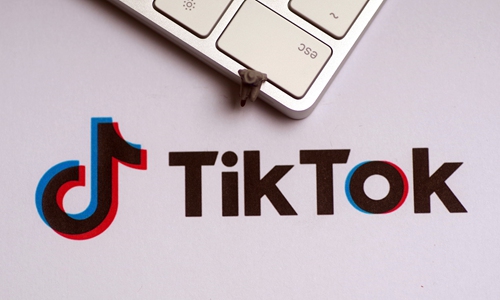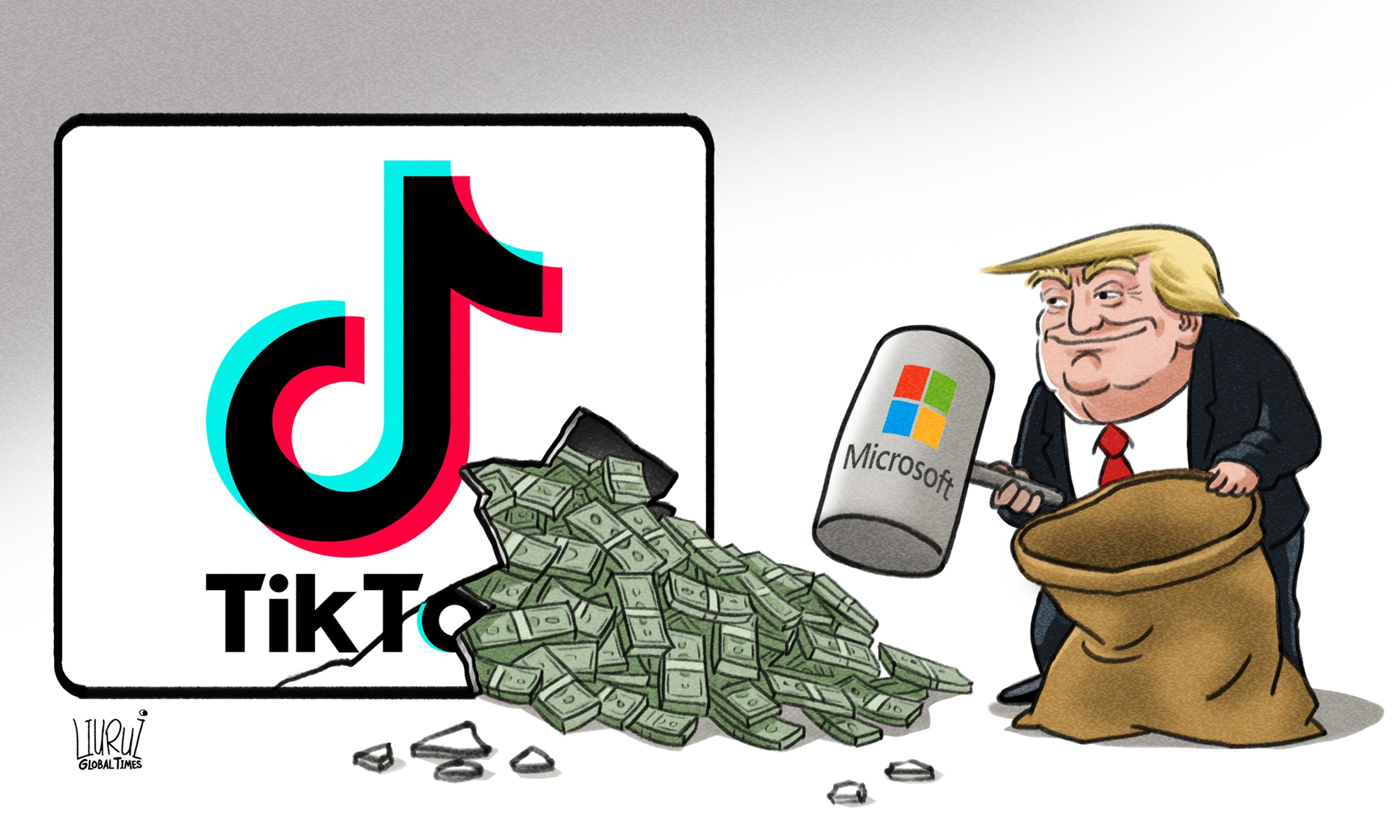TikTok defiant over Trump's doubts of deal
By Wang Cong and Zhang Hongpei Source: Global Times Published: 2020/9/17 20:43:20 Last Updated: 2020/9/17 22:20:20

TikTok Photo: VCG
Chinese tech firm ByteDance, the parent company of video-sharing platform TikTok, struck a defiant tone on Thursday, saying publicly for the first time that the proposed deal would not involve the sale of operations and technology, and would require regulatory approvals from both the Chinese and US governments after US President Donald Trump raised doubts over a reported partnership deal just days ahead of a deadline for a forced sale of TikTok's US operations.
The latest developments underscored the still elusive nature of an extremely complex situation that directly involves TikTok's fate in the US and is at the forefront of the escalating technology war between China and the US. They also highlighted the limitations of the US' "mafia-style extortion" of the Chinese firm and China's low-key but firm measures to protect its technologies and companies, experts noted.
While it is still possible for the US to approve what Chinese experts call a most reasonable deal, which was set up for a partnership rather than a complete takeover, the Chinese company showed that it was prepared for a worst-case scenario where it is banned completely in the US - potentially sounding the alarm for other Chinese companies that are being targeted by the US government, experts added.
After Trump hinted that he could disapprove a reported deal and with the fate of its US operations on the line, ByteDance remained defiant as it denied reaching any final deal, publicly defying a US government order and invoking new Chinese regulations in the process.
In a statement on Thursday, the Beijing-based company said that though the company was in talks with some companies on a "cooperation plan" to address US concerns, no final deal has been reached yet.
"The above plan does not involve a sale of operations or technology and a final deal also has not been signed yet," ByteDance said, defying a US order to sell its operations or face a ban.
In addition, a final deal still needs to be approved by relevant authorities in both China and the US, the company told the Global Times on Thursday.
The statement came after Trump said on Wednesday he was not ready to sign off on a deal between ByteDance and US tech firm Oracle, just days before a September 20 deadline set by Trump for TikTok to sell its US operations to a US business or face a complete ban in the country.
The partnership deal with Oracle would allow ByteDance to retain its algorithms, while Oracle would control US users' data, according to media reports.
Asked about the reported deal at a press briefing on Wednesday, Trump said that "I'm not prepared to sign off on anything. I have to see the deal… conceptually, I can tell you I don't like that."
In a bizarre remark, Trump, who was a real estate developer before venturing into politics, appeared to be very surprised when he found out that the US government could not take a share of the deal as he has repeatedly claimed he would do like what a real estate broker would do.
"Amazingly, I found that you're not allowed to do that… I said, 'No, I want a big chunk of that money to go to the United States government because we made it possible.' And the lawyers come back to me and they say, 'Well, there's no way of doing that,'" Trump said, according to the White House.
Trump added that he would receive a report on the deal on Thursday morning (US time). It was unclear if a decision would be made at the time.

Trump administration's daylight robbery, blatant intimidation to "smash & grab" from TikTok.Illustration:Liu Rui/GT
Limited handThough Trump's remarks appeared tough, he might have a limited hand to further force the sale of TikTok to a US business, given the short deadline he had set, the intricacies of a potential transaction and the complications posed by new Chinese regulations, Chinese experts noted.
"Failure to reach a deal at the moment means the failure of Trump administration's relentless crackdown on Chinese firms. Now the best way out for Trump is to accept the deal even if he might put forward some revisions on the current plan," Ma Jihua, a senior analyst in the internet industry who has been closely following the TikTok event, told the Global Times on Thursday.
Ma noted that the partnership deal is the most reasonable one the Chinese firm can offer and that is also where the firm's bottom line basically lies, Ma said, noting that shutting down TikTok in the US would be a lose-lose situation for all parties.
Technologies like algorithms are crucial to TikTok assets and the company will not sell them under the current circumstances, which means that ByteDance and its board members led by founder Zhang Yiming have been prepared if the partnership proposal with Oracle is blocked by the Trump administration, according to Ma.
However, Tiktok's high-priced algorithm would be more venerable if Chinese officials haven't moved recently to put a shield on that. Earlier this month, the Ministry of Commerce revised its regulations on restricted and banned exports of Chinese technology, requiring exports of algorithms, among others, to gain Chinese regulatory approval beforehand.
Experts noted that the move essentially offered protection for TikTok and other Chinese firms targeted by the US government - a relatively low-key move but could be very helpful for Chinese companies caught in situations like TikTok were.
TikTok appeared to be adapting to that, as it stressed on Thursday that a final deal would require not just US approval but also Chinese approval as well.
When asked about that at a press briefing on Thursday, Wang Wenbin, a spokesperson for the Chinese Foreign Ministry, reiterated calls for the US to respect market and fair competition rules, international trade regulations and stop politicizing normal trade cooperation.
There are also different voices within the Trump administration toward the TikTok deal, where some dovish officials like the Secretary of Treasury Steven Mnuchin are pushing to complete the deal, while China hawks like Secretary of State Mike Pompeo might be blocking the deal.
And the doves might win this time, said Meng Qingbin, a professor at the Business School of the Renmin University of China.
"Look at the surging stocks of US tech firms boosted by demand from the Chinese market, it is really not good timing to wield political stops toward Chinese firms, which will only bite their own economy," Meng told the Global Times.
Apart from sharp criticism, Chinese officials have also taken actions to protect Chinese technology and businesses.
While TikTok has 100 million users in the US, the app's popularity is global, with over 2 billion downloads worldwide, according to media reports. In Europe, TikTok has more than 100 million active monthly users and the number could grow rapidly in the coming years, CNBC reported. In China, Douyin, TikTok's Chinese version, has about 600 million active daily users, according to CNBC.
Posted in: COMPANIES